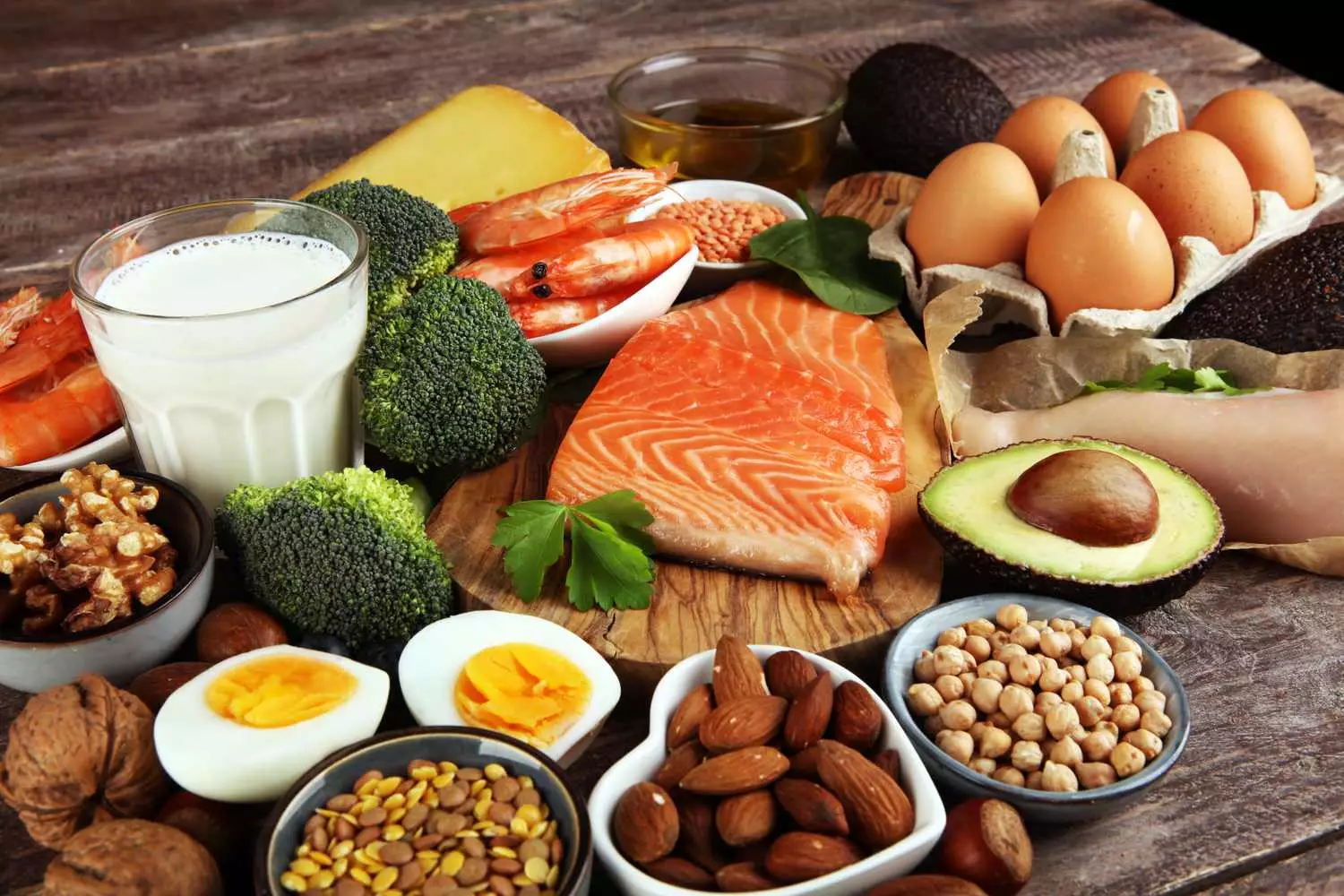Table of Contents
Exercise Daily – The body is a miraculous machine, capable of doing incredible things day in and day out. But like all machines, it needs fuel to work at its best. And for the average person, that fuel comes in the form of food. When it comes to protein, most people think of meat as the source of this essential nutrient. But that’s not always the case. In fact, plant-based proteins are just as good and sometimes even better when it comes to providing your body with the amino acids it needs. So if you’re looking to increase your protein intake without having to eat meat on a daily basis, read on for some facts about how much protein your body can absorb at one sitting. You may be surprised by what you find.
How Much Protein Body Can Absorb at One Sitting
The truth about how much protein body can absorb at one sitting is that it depends on a person’s size and muscle mass. Generally, the average person can comfortably absorb around 20 to 25 grams of protein at one sitting. That’s equivalent to about two-thirds of the daily amount recommended by the USDA for women and nearly double the amount recommended for men. The amount of protein your body can absorb will also vary depending on the source of the protein: animal or plant-based.
The amount of protein that a person can absorb within one sitting is limited by their digestive system and their own dietary intake. The average person can consume protein about 25 grams of protein in one sitting, which is the equivalent of six ounces of chicken breast, two eggs, or a quarter cup of cottage cheese. The more muscular you are, the more protein you’ll need for muscle protein synthesis.

The Causes of Protein Deficiency
Protein deficiency is a common problem that can result from a lack of protein intake. Protein is essential for the body to function properly, and deficiencies can lead to health problems such as fatigue, muscle weakness, and poor skin health. The amount of protein your body can absorb at one sitting varies depending on your age, weight, and muscle lean body mass.
While most people need around 56 grams of protein per day, the recommended amount for older adults is 66 grams per day and for pregnant women, it’s 71 grams per day. If you’re not getting enough protein in your diet, consider adding more sources of protein to your meals or supplements.
The Risks and Benefits of Consuming Too Much Protein
Protein is an important macronutrient for athletes and fitness enthusiasts. It helps build and maintain muscle mass, supports energy production, and aids in the repair of tissue. But what happens when you exceed the recommended amount?
The risks associated with consuming too much protein include gastrointestinal distress, elevated blood pressure, kidney damage, and even death. The benefits are that excess protein can lead to weight gain, muscle loss, and a higher risk for type 2 diabetes. So how much is too much?
The Recommended Daily Allowance (RDA) for protein is 56 grams per day for women and 66 grams per day for men. The RDA was established based on the estimated daily caloric needs of a sedentary person who engages in little physical activity. If you are physically active or have a higher caloric requirement, then you may require more dietary protein than the RDA recommends.
Individuals who engage in heavy exercise or participate in bodybuilding may need even more protein than this because intensive exercise results in increased muscle catabolism (the breaking down of muscle tissue).
If you consume more than your allotted amount of protein, it will be broken down into peptides which act as hormones or neurotransmitters in the body. Too much peptide production can contribute to gastrointestinal distress, elevated blood pressure, kidney damage, and even death. While there are benefits to consuming too much protein- such as gaining weight or muscle- these risks must be weighed against those benefits before making any decisions about whether or not to exceed the RDA.

How Much Protein is Enough?
The claim that the average person needs 56 grams of protein per day to maintain muscle mass is largely based on outdated research and does not take into account individual factors. According to the National Academy of Sciences, the recommended dietary allowance (RDA) for protein is 0.36 grams per kilogram body weight, meaning an average person who weighs 150 pounds should consume 54 grams of protein daily.
That doesn’t mean you need to eat a full pound of chicken or fish every day, but rather aim for around 3-4 ounces per day. When breaking down those numbers, that means a 150-pound person would need around 60-72 grams of protein each day, and a 300-pound person would need about 116 grams.
Contrary to popular belief, exceeding the RDA will not cause any adverse effects and can even be beneficial; consuming too much protein can result in muscle damage and losses. Taking into account your specific activity level and goals, it’s important to figure out how much protein you need to maintain your current weight and achieve your fitness goals. What Is The Best Protein Shakes For Losing Weight? Get the answer.
The Different Types of Protein
There are many different types of protein and each has a specific set of benefits. Here are the four main types of protein and the benefits they offer:
1. Animal-based proteins
Animal-based proteins are high in quality and provide all the essential amino acids your body needs to build muscle and repair tissue. They’re also a great source of energy, promoting sustained energy throughout the day.
2. Plant-based proteins
Plant-based proteins are low in calories but boast many of the same beneficial properties as animal-based proteins. They’re also a good source of fibre, vitamins, minerals, antioxidants and omega-3 fatty acids.
3. Soy products
Soy products are a great source of plant-based protein, as well as soy isoflavones and other nutrients that support health and well-being. They’re also cholesterol free and have few if any allergens.
4. Whey protein isolate/whey concentrate
Whey protein isolates/concentrates are a great choice for those looking for an ultrahigh-quality source of protein. These products contain all the essential amino acids except for the ones that are difficult to break down in the stomach (e.g., lysine). This makes them ideal for people with food allergies or sensitivities since they won’t react to ingredients like dairy or eggs in these products.
The Benefits of Eating More Protein
The human body composition can only absorb about 24 grams of protein at a time. That’s why, in order to maximize the benefits of eating more protein, it is best to combine proteins from different sources. Doing so can help to ensure that your body gets the most benefit from each meal.
When you eat enough protein, it helps to keep your metabolism going and supports muscle growth. In addition, consuming high-quality protein can help you feel fuller and longer and avoid unhealthy snacking habits. Additionally, when you eat more protein, it can help regulate blood sugar levels and improve insulin sensitivity.
Protein is one of the three macronutrients that are essential to our health, along with fat and carbohydrates. It is the building block of our muscles, skin, and bones. It is also necessary for the production of enzymes and hormones.
There are many benefits to eating more protein. For one, it can help you lose weight. Protein takes longer to digest than carbohydrates, so it helps you feel full for longer. This can lead to reduced calorie intake and weight loss.
In addition, protein is essential for muscle growth. When you exercise, your muscles are broken down. Protein helps to repair and rebuild these muscles, leading to increased strength and size.
Finally, protein is essential for a healthy immune system. Cells need protein in order to function properly. Eating enough protein can help to keep your immune system strong and prevent illnesses.
So, as you can see, there are many benefits to eating more protein. If you are looking to lose weight, gain muscle, or improve your overall health, be sure to include protein in your diet.

The Risks of Overconsuming Protein
Protein is an essential nutrient for the human body, and it is one of the building blocks of muscle. However, too much protein can be dangerous for the body if not consumed in moderation.
When eating protein, the body first breaks it down into its individual constituent amino acids. The optimal amount of protein intake for the human body depends on a person’s age, sex, weight, and activity level. The Centers for Disease Control and Prevention (CDC) recommends at least 56 grams (1 cup) of protein daily for adults, but this number may vary depending on a person’s size and activity level. Can too Much Protein Cause Constipation? see experts’ overview.
The Institute of Medicine (IOM) has determined that most adults need about 62 grams (1 cup) of protein daily to meet their recommended dietary allowance (RDA). For athletes who are training intensely or consuming large amounts of protein supplements to promote muscle growth, they may need up to three times this amount – 196 grams (6 cups) per day.
Too much protein can cause problems in the body if not metabolized correctly. Excessive levels of nitrogen in the blood can lead to kidney failure over time. Too much nitrogen can also contribute to high blood pressure and other health issues.
Additionally, proteins break down into various toxins when not used by the body which can cause harm if ingested in large quantities. These toxins include ammonia, urea nitrogen, creatinine, trimethylamine N-oxide (TMAO), and lactic acid. If you are looking to improve your muscle protein synthesis, then a protein powder with branched-chain amino acids.

Conclusion
It is true that the body can absorb a certain amount of protein at one sitting, but it’s important to note that this limit varies from person to person and depends on factors like age, weight, and muscle mass. In general, the average adult can safely consume around 56 grams of protein per day without experiencing any negative effects. So if you’re looking for an easy way to boost your intake of essential nutrients, consider including some sources in your high-protein diet every day.
FAQs
Can your body absorb more than 30g of protein?
Some scientific studies showed that protein can be consumed almost everywhere and the greater the amount of protein you consume, the faster your digestion time is going.
Can your body absorb 60 grams of protein at once?
The maximum amount at which they can absorb is about eight to 10 g per hour. You have to maintain a consistent protein intake throughout the day because you will not have time to eat or take care of all the necessary calories every day.
Is there a limit to protein absorption?
In terms of nutrition the term “absorbed” describes transporting nutrients through the stomach and into the systemic circulatory system. Accordingly, protein absorbance is nearly unlimited.
Is 50g of protein too much for one meal?
What’s the protein content of the foods? According to Calder and Mancella, a maximum intake of 30g of protein is recommended for most people, as excess is expelled through urine. The excess protein consumption of protein can no longer be stored,” Marcella added.





